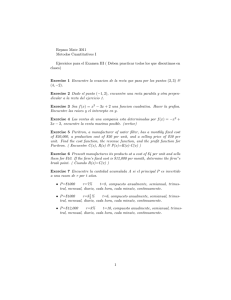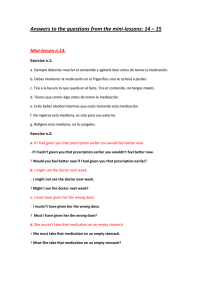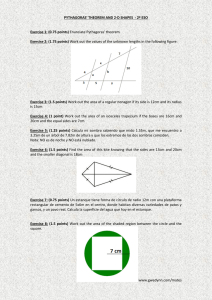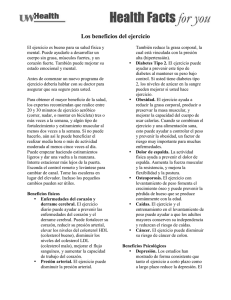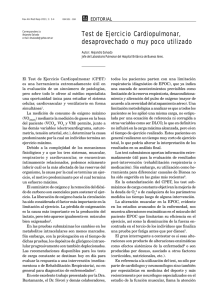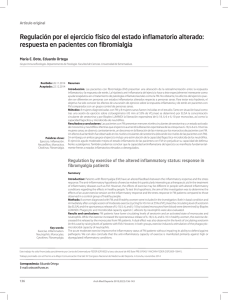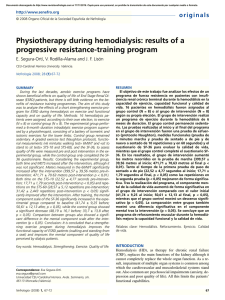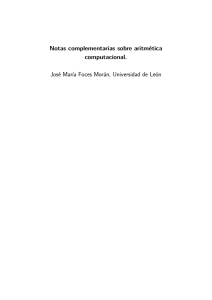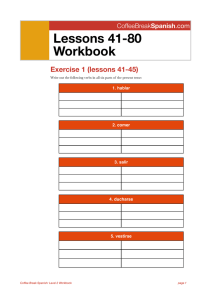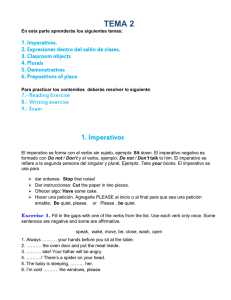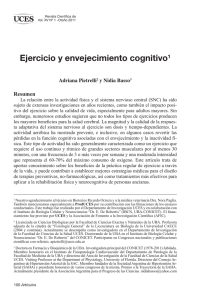Inglés
Anuncio
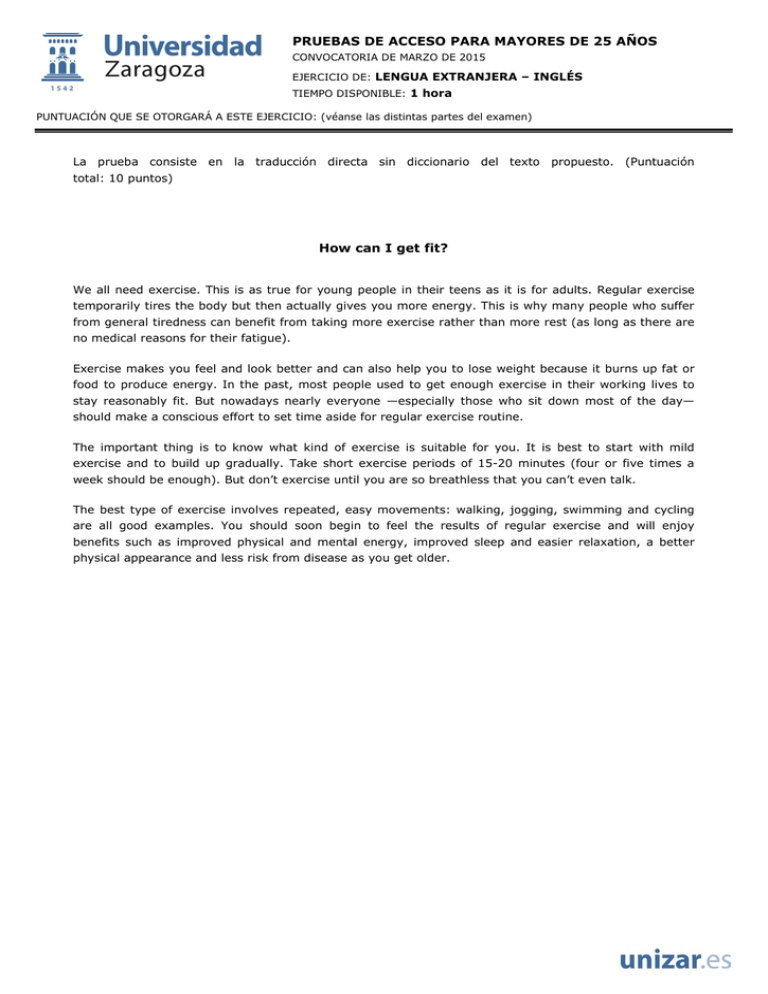
PRUEBAS DE ACCESO PARA MAYORES DE 25 AÑOS CONVOCATORIA DE MARZO DE 2015 EJERCICIO DE: LENGUA EXTRANJERA – INGLÉS TIEMPO DISPONIBLE: 1 hora PUNTUACIÓN QUE SE OTORGARÁ A ESTE EJERCICIO: (véanse las distintas partes del examen) La prueba consiste en la traducción directa sin diccionario del texto propuesto. (Puntuación total: 10 puntos) How can I get fit? We all need exercise. This is as true for young people in their teens as it is for adults. Regular exercise temporarily tires the body but then actually gives you more energy. This is why many people who suffer from general tiredness can benefit from taking more exercise rather than more rest (as long as there are no medical reasons for their fatigue). Exercise makes you feel and look better and can also help you to lose weight because it burns up fat or food to produce energy. In the past, most people used to get enough exercise in their working lives to stay reasonably fit. But nowadays nearly everyone —especially those who sit down most of the day— should make a conscious effort to set time aside for regular exercise routine. The important thing is to know what kind of exercise is suitable for you. It is best to start with mild exercise and to build up gradually. Take short exercise periods of 15-20 minutes (four or five times a week should be enough). But don’t exercise until you are so breathless that you can’t even talk. The best type of exercise involves repeated, easy movements: walking, jogging, swimming and cycling are all good examples. You should soon begin to feel the results of regular exercise and will enjoy benefits such as improved physical and mental energy, improved sleep and easier relaxation, a better physical appearance and less risk from disease as you get older. PRUEBAS DE ACCESO PARA MAYORES DE 25 AÑOS CONVOCATORIA DE MARZO DE 2015 EJERCICIO DE: LENGUA EXTRANJERA - INGLÉS CRITERIOS ESPECÍFICOS DE CORRECCIÓN La calificación máxima de este ejercicio será de 10 puntos. Para su corrección, se tendrán en cuenta los siguientes criterios: Criterio 1 Errores de interpretación relacionados con el texto origen: se penalizarán con 1 punto aquellos errores que afecten a la interpretación adecuada del texto global, el sentido original de sus frases (Contresens, Faux sens, Nonsens) o que supongan la adición o supresión injustificada de información sustancial respecto al texto origen. La penalización máxima por este apartado será de 5 puntos. Criterio 2 Errores de producción relacionados con el texto en español: se penalizarán con 0,25 puntos los errores puntuales de carácter ortográfico, gramatical, semántico y sintáctico que afecten a la comprensión y corrección lingüística del texto traducido. Cada error repetido se penalizará 1 sola vez. La penalización máxima por este apartado será de 5 puntos. Criterio 3 Resolución de problemas planteados por la traducción: se valorará especialmente la transferencia del sentido del texto original frente a una traducción estrictamente literal, la atención a las particularidades y posibles interferencias de la lengua objeto de traducción, la riqueza y fluidez en la reexpresión del texto y la coherencia y creatividad en las propuestas aportadas. La valoración máxima por este apartado será de 6 puntos. Criterio 4 Corrección académica: se valorará el rigor, orden y limpieza en la realización y la presentación final del ejercicio. La valoración máxima por este apartado será de 4 puntos.
